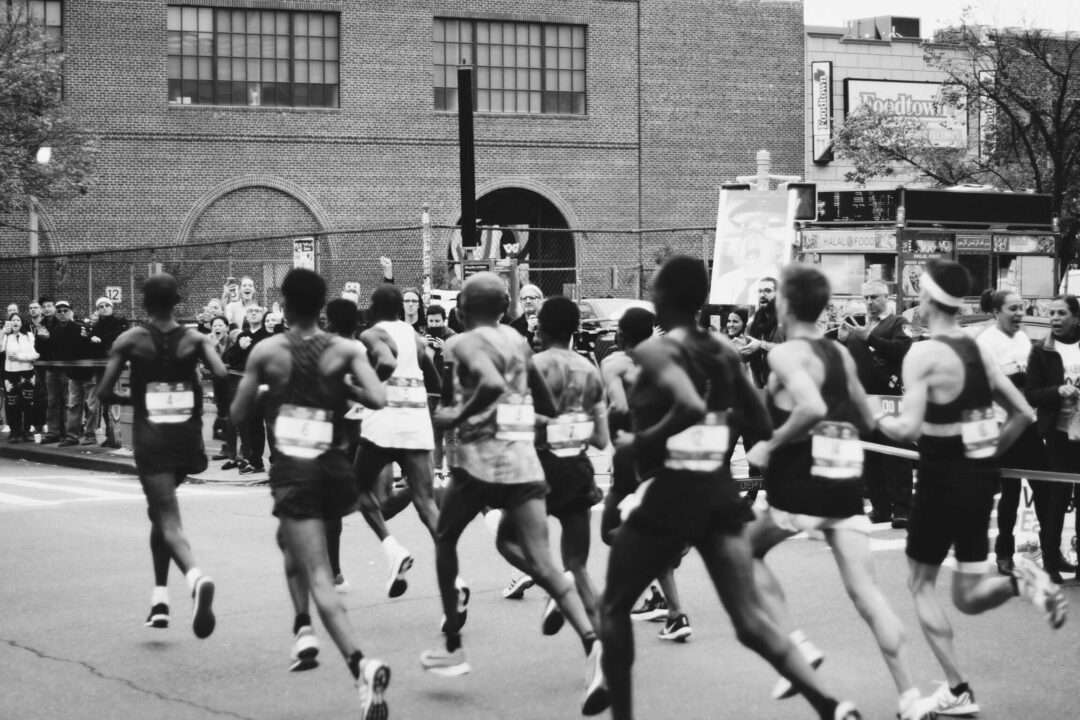For the past month, I’ve been jogging on Thursday mornings with a friend. We both need the exercise, and during this time of stay-at-home orders, I need some extra incentive to get up early. Our time together is mostly practical. Neither of us like running. We love one another as brothers, but we don’t talk on our morning run—maybe a quick check in before and after. In keeping with the spirit of the age, we remain socially distant throughout the run. We suffer together in solidarity, trusting that we’re doing one another physical good.
Last Thursday morning was like the others. The run was chilly and painful, and few people were out and about. We had a brief chat afterward, then we parted ways. Later that morning, I decided to check the news after having ignored it for a couple of days. It was then that I learned of the killing of Ahmaud Arbery. After the initial shock of the horrific video, lightning struck: my friend and running mate is a black man.
Facts, Evidence, and the Race Conversation
After a death like Arbery’s, debates inevitably emerge. Unfortunately, Christian engagement in the conversation is often worldly because it fails to move beyond the empirical evidence—evidence that can be measured or perceived by the senses. Combatants enter the debate wielding their favorite data or piece of evidence like a club. Brothers and sisters in Christ walk away from the conversation wounded and divided. Real pain is left unaddressed.
A common response to the pain of another, is to qualify it with evidence. We offer statistics before we offer sympathy. We relativize their pain to our own. We may search for reasons why they shouldn’t feel pain or why it isn’t as bad as they think it is. While there may be a time for to provide perspective with counter evidence, this is too often our first move. Jumping to a conversation about stats we’ve collected often misses the most important evidence: the personal history of the one we’re engaging and the invisible world of emotions that come with that history.
The Biblical pattern presents us a different strategy—we should meet distress, pain, and fear with compassion in love. Jesus begins by weeping at Lazarus’ tomb (John 11:35) and having compassion on the widow who lost her son (Luke 7:13), instead of putting their pain in perspective. He acknowledges and enters into their subjective pain before leaping to objective realities. Likewise, Paul begins his appeal for unity by exhorting the Ephesians to bear with one another in humility, gentleness, patience, and love (Ephesians 4:1-3).
Before we qualify a friend’s pain with data, isn’t it more fitting to greet it with compassion? In drawing near, we may even learn something also. This was the exercise I attempted last Thursday.
Same Course, Same Distance, Same Pace—Two Different Runs
Last Thursday, my friend and I participated in the same physical activity, but we participated in different mental and emotional exercises because of our skin color and histories. His was the exercise of seeking to fear God more than man while mine was the exercise of planning my day. He was fighting against hatred rising up in his own heart, while I was fighting against the pain in my legs. He was lamenting a tragic killing. I was lamenting my poor choice of eating so many cookies the day before. I was focused on the routine. He was focused on a tragedy that’s sadly routine. Like our run that morning, there was more going on beyond the world of material things.
But is his fixation on race here unfounded? His own life in the neighborhood we share speaks otherwise. He’s had a pleasant walk with his family wrecked by dehumanizing remarks lobbed like grenades from afar. He’s learned it’s unwise to walk around our neighborhood with a hood up. Now it’s more understandable that running alone may not be a good idea either. Meanwhile, I take all these things for granted. Maybe his fear is outsized, but it’s certainly not unfounded; personal experience as a black man has taught him otherwise.
When I think of the number of his normal routines torpedoed because of the color of his skin, it becomes more difficult for me to relativize his fear of going for a jog because we can’t prove the guys who shot Ahmaud were working from racist motives. I can begin to lament with him. I can begin to work through it with him. And finally, I can begin to conceive of the same kind of pain felt by so many other brothers and sisters in Christ who I don’t know. I can love them better and real gospel unity is cultivated before I even consider whether correction is needed.
Prayer Requests:
- Pray that you would learn to be gentle, patient, and loving with those you don’t understand.
- Pray that you would believe the best about your brother or sister who is grieving.
- Pray that God would heal divisions among Christians created by a failure to listen to one another.












